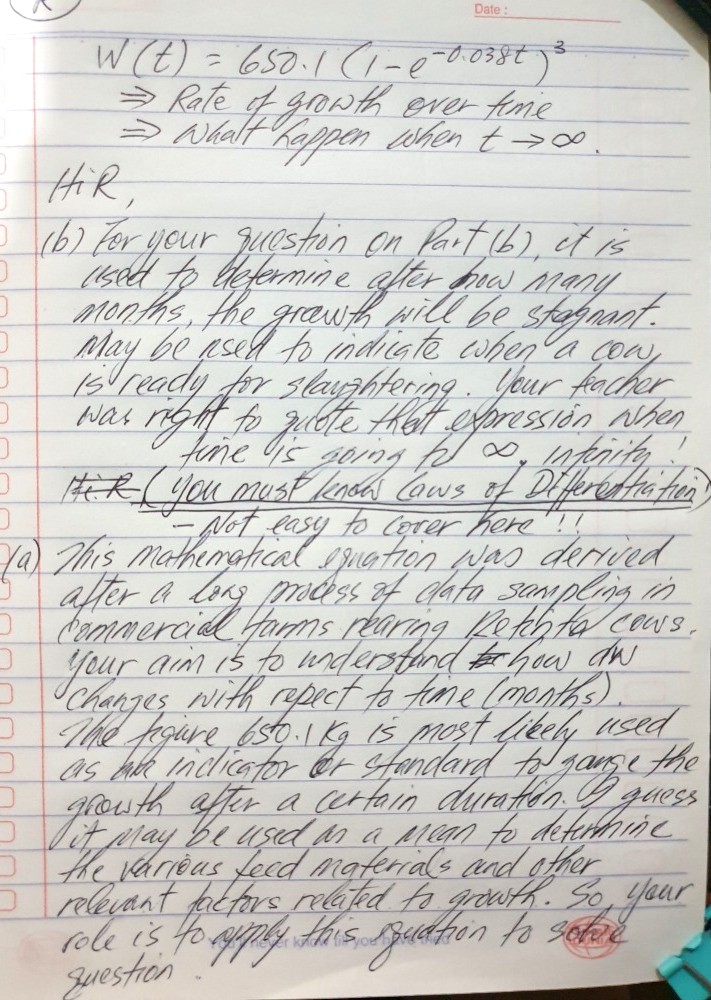Ask Singapore Homework?
Upload a photo of a Singapore homework and someone will email you the solution for free.

Question
secondary 4 | E Maths
One Answer Below
Anyone can contribute an answer, even non-tutors.

Hi only need help with question (b)
The way the teacher is explaining question B is extremely confusing.
Can someone please teach me how to solve question be step-by-step clearly thank you so much
PS: was the teacher wrong when she wrote e^-0.038t= 1/e^-0.038t
So, t can be allowed to go on forever (that is what is meant by t --> ∞).
Basically, when t --> ∞, t can be thought of as a very large number. More than a thousand. More than a million. More than a billion. More than...
Multiplying a very large value of t by 0.038 isn't going to make the new value small - it remains very large.
What happens when the number e is raised to this very large power? How big does the number get?
And what happens when the number 1 is divided by e^(0.038t)? What will happen to the number?
It will get extremely close to zero. So, when t is very large, 1/e^(0.038t) or simply e^(-0.038t) is as good as zero in the long run (even though it does not actually reach zero).
We need this result because the expression for W contains e^(-0.038t).
See 1 Answer

This question is used to illustrate how commercial dairy farms apply various scientific methods to monitor the growth of cows, sheeps etc. To entrepreneurs, time is money.
To handle this question, u must be familiar with the topics on differentiation, exponential, changes or small increment with respect to time. Sorry, long stories, not easy to explain here. More importantly, revise the chapter of Differentiation. In fact, the exponential equation looks frightening but the working is actually very simple, simpler than differentiate many other algebraic equations of x and y with powers or indices. Hope this helps. CY.




